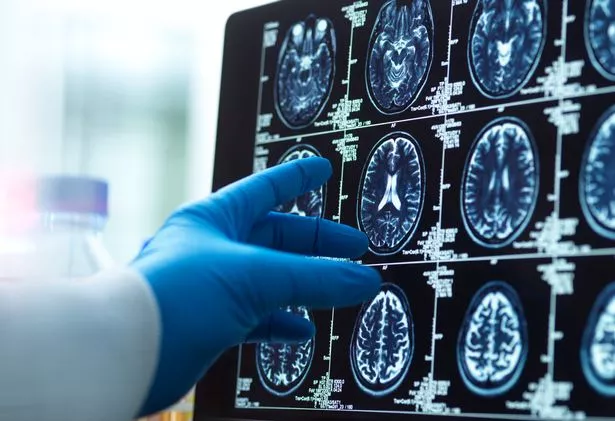If you spot any of these signs you should speak to a healthcare professional According to experts, some early signs of dementia could appear during conversation(Image: Getty)
According to experts, some early signs of dementia could appear during conversation(Image: Getty)
Health experts have highlighted three early signs of dementia that could appear when talking to a loved one. Certain symptoms of the condition could become apparent during conversation.
Dementia is a group of symptoms linked to progressive brain decline. It primarily affects those aged over 65, with nearly one million people across the UK believed to be living with the condition.
While many recognise memory loss as a key indicator of dementia, there are additional warning signs that can emerge in everyday situations which shouldn’t be ignored. The Alzheimer’s Association highlights that certain symptoms may become apparent during conversations with someone who has dementia.
 Signs include stopping mid-conversation(Image: Getty)
Signs include stopping mid-conversation(Image: Getty)
The charity identifies three “early” warning signs that impact their conversational abilities. These include:
Stopping mid-conversationRepeating themselvesUsing incorrect words for objects
Should you notice any of these indicators, it’s advisable to consult a GP. That said, the charity notes that occasionally struggling to find the right word can simply be a “typical” sign of ageing.
The Alzheimer’s Association says: “People living with Alzheimer’s or other dementia may have trouble following or joining a conversation. They may stop in the middle of a conversation and have no idea how to continue or they may repeat themselves.
“They may struggle with vocabulary, have trouble naming a familiar object or use the wrong name (eg, calling a watch a ‘hand-clock’).”
These difficulties are medically termed aphasia. In a post made to Facebook, Alzheimer’s Scotland identified this as a “lesser known” indicator of dementia.
 It is thought nearly one million people in the UK are living with dementia(Image: Getty)
It is thought nearly one million people in the UK are living with dementia(Image: Getty)
“You could notice a person struggling to follow a conversation, or that they are unable to find the right words,” it said.
“Sometimes a person might use a related word that is just ‘not quite right’ like jumper instead of jacket. This is called ‘aphasia’. This can affect names too, even with people they know well.”
Additional early warning signs of dementia, according to the Alzheimer’s Association, include:
Memory loss that disrupts daily lifeChallenges in planning or solving problemsDifficulty completing familiar tasksConfusion with time or placeTrouble understanding visual images and spatial relationshipsMisplacing things and losing the ability to retrace stepsDecreased or poor judgementWithdrawal from work or social activitiesChanges in mood and personality
If you spot any of these symptoms in a loved one, it’s important to seek medical advice. Whilst there’s currently no cure for dementia, treatments and support are available.

